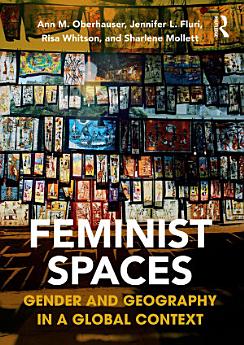Feminist Spaces: Gender and Geography in a Global Context
About this ebook
Through case studies, this book challenges the construction of dichotomies that tend to oversimplify categories such as developed and developing, urban and rural, and the Global North and South, without accounting for the fluid and intersecting aspects of gender, space, and place. The chapters weave theoretical and empirical material together to meet the needs of students new to feminism, as well as those with a feminist background but new to geography, through attention to basic geographical concepts in the opening chapter. The text encourages readers to think of feminist geography as addressing not only gender, but a set of methodological and theoretical perspectives applied to a range of topics and issues. A number of interactive exercises, activities, and ‘boxes’ or case studies, illustrate concepts and supplement the text. These prompts encourage students to explore and analyze their own positionality, as well as motivate them to change and impact their surroundings.
Feminist Spaces emphasizes activism and critical engagement with diverse communities to recognize this tradition in the field of feminism, as well as within the discipline of geography. Combining theory and practice as a central theme, this text will serve graduate level students as an introduction to the field of feminist geography, and will be of interest to students in related fields such as environmental studies, development, and women’s and gender studies.
About the author
Ann M. Oberhauser is Professor of Sociology and Director of Women’s and Gender Studies at Iowa State University, USA.
Jennifer L. Fluri is Associate Professor, Department of Geography, University of Colorado-Boulder, USA.
Sharlene Mollett is Assistant Professor, Department of Human Geography and Centre for Critical Development Studies, University of Toronto, Canada.
Risa Whitson is Associate Professor, Department of Geography and Women’s, Gender, and Sexuality Studies Program, Ohio University, USA.




